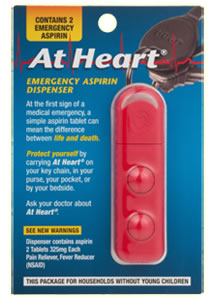Symptoms may appear up to a month before attack
Research by the National Institutes of Health (NIH) indicates that women often experience new or different physical symptoms as long as a month or more before experiencing heart attacks. Among the 515 women studied, 95 percent said they knew their symptoms were new or different a month or more before experiencing their heart attack.
The women’s major symptoms prior to their heart attack included:
• Unusual fatigue – 70%
• Sleep disturbance – 48%
• Shortness of breath – 42%
• Indigestion – 39%
• Anxiety – 35%
Surprisingly, fewer than 30 percent reported having chest pain or discomfort prior to their heart attacks, and 43 percent reportedly had no chest pain during any phase of the attack. Most doctors, however, continue to consider chest pain as the most important heart attack symptom in both women and men.
Major symptoms during the heart attack include:
• Shortness of breath – 58%
• Weakness – 55%
• Unusual fatigue – 43%
• Cold sweat – 39%
• Dizziness – 39%
When suffering a heart attack, seconds count. That’s why at the first onset of heart attack symptoms, the American Heart Association recommends calling 911 and chewing an aspirin tablet. Taking an aspirin during a heart attack may reduce the risk of death by up to 23%.*

Most of the heart attacks occur when someone is away from home, and most heart attack deaths occur before the patient gets to the hospital. Keeping an At Heart® emergency aspirin dispenser with you can protect you and your loved ones. For more information on heart attack prevention please visit:
http://at-heart.com/prevention.php
*The accessibility of the aspirins are key — in a FDA-reviewed clinical study of over 16,000 patients, chewing an aspirin during a suspected heart attack and continued use for 30 days thereafter reduces the risk of death by up to 23%. If taken during a suspected heart attack, aspirin can also lessen the damaging effects of the attack.
 News Chicago Business, Info & Events
News Chicago Business, Info & Events







